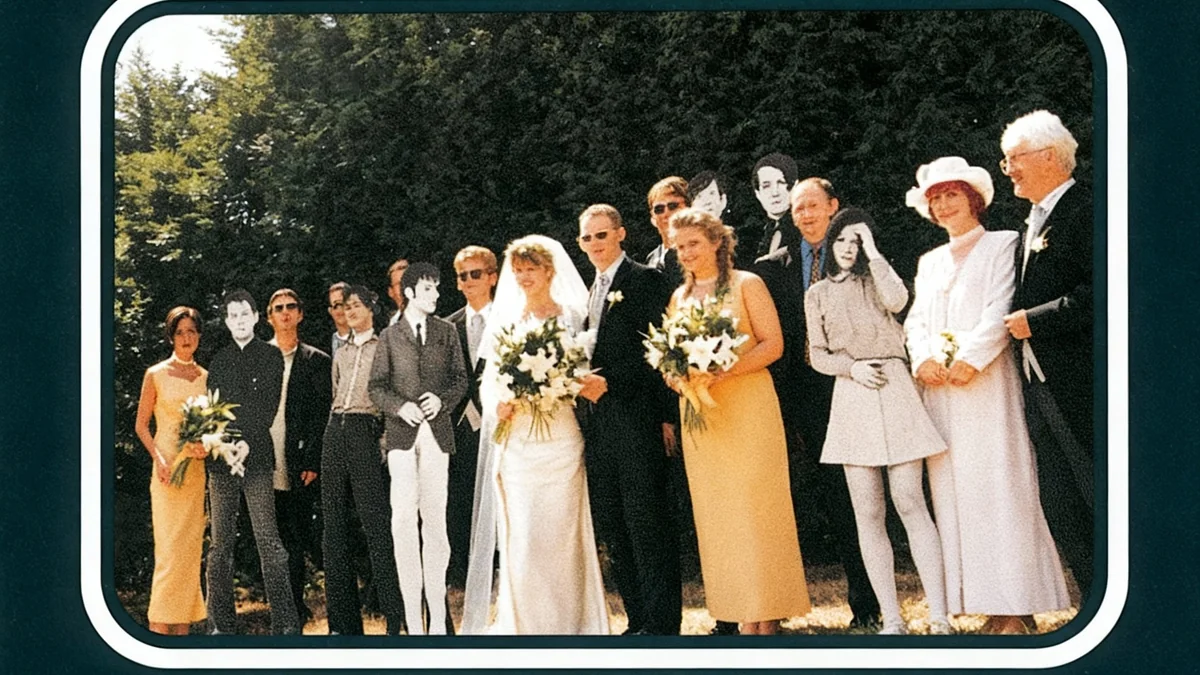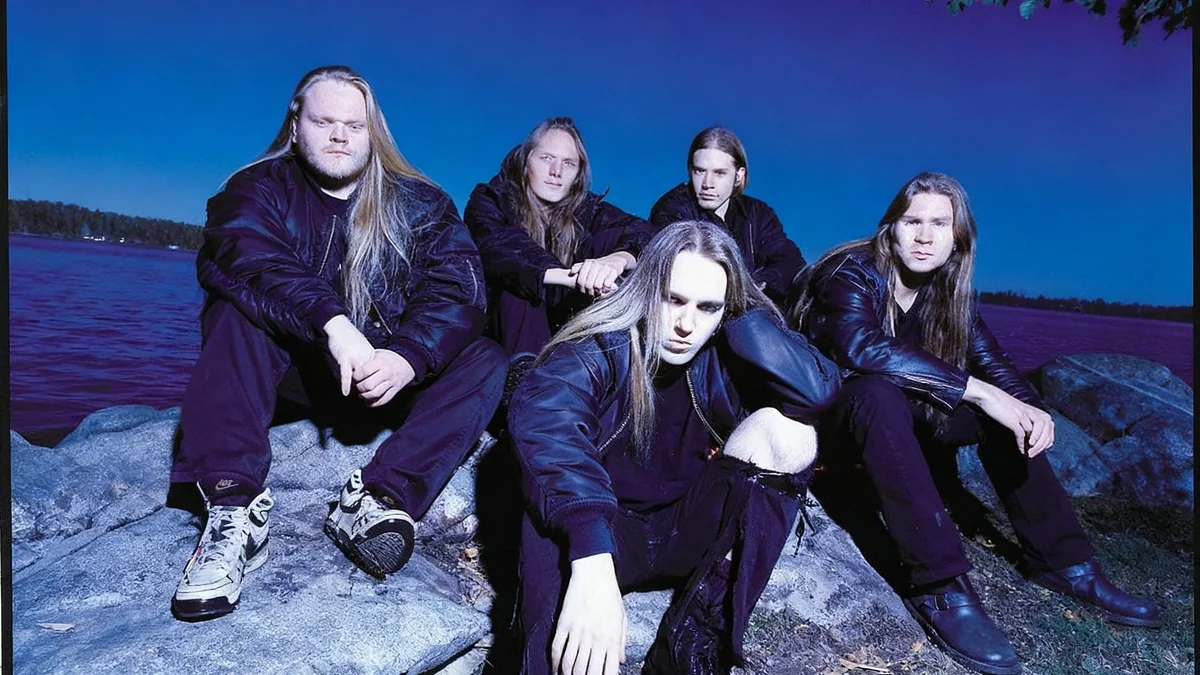Thirty years ago, on October 30, 1995, a record was released that perfectly captured the cultural mood of a nation while giving a voice to everyone who ever felt like they didn't belong. Pulp's fifth album, 'Different Class', went straight to number one on the UK charts, cementing the band's long and arduous journey from obscurity to stardom.
The album was more than just a collection of songs; it was a sharp, witty, and often poignant commentary on social class, desire, and the lives of the misfits. It was the sound of a band, led by the charismatic Jarvis Cocker, finally hitting their stride after 16 years of trying.
Key Takeaways
- Pulp's 'Different Class' was released on October 30, 1995, and immediately debuted at #1 on the UK album charts.
- The album was defined by its lead single, "Common People," which became an anthem for a generation and peaked at #2 on the charts.
- A last-minute headline performance at the 1995 Glastonbury Festival catapulted the band and the song into the national consciousness.
- The album's lyrical themes, primarily written by Jarvis Cocker, focused heavily on social class, a departure from the band's earlier work.
The Long Road to the Top
Pulp's success was anything but overnight. The band, in various forms, had existed since the early 1980s, with frontman Jarvis Cocker as the only constant member. For years, they toiled in relative obscurity, facing public and critical indifference.
The journey was so long that Cocker famously put the band on hold to study film at London’s Central Saint Martins College of Art and Design. It was a pivotal move. His time in London, particularly his exposure to rave culture and his meeting with future bassist Steve Mackey, reshaped the band's direction.
This period also provided the direct inspiration for what would become their most iconic song. An encounter with a fellow student from Greece who wanted to experience life like "common people" planted a seed that would later blossom into a generation-defining anthem.
The Birth of an Anthem
By the 1990s, Pulp was a different entity. Cocker's songwriting had become more focused, his observations sharper, and his stage presence more confident. The band’s sound, a blend of glam rock and disco, was finally snapping into place. While their 1994 album 'His N' Hers' was a significant step forward, it didn't prepare anyone for what was coming next.
The breakthrough came from an unlikely source: a cheap Casiotone MT-500 keyboard. Cocker bought the instrument and, while experimenting, stumbled upon the riff that would form the basis of "Common People." He knew instantly he had something special, possibly for the first time in his career.
Building a Modern Classic
To capture the grand scale he envisioned for "Common People," Cocker told producer Chris Thomas he wanted it to sound as big as ELO's "Mr. Blue Sky." They spent two weeks in the studio, using two 48-track machines to layer the instruments and create the song's signature widescreen, epic sound.
The band and their label, Island Records, felt a sense of urgency. They decided not to wait for a full album and released "Common People" as a single on May 22, 1995. It entered the charts at number two, a massive success, but its true cultural explosion was yet to come.
A Glastonbury Moment
The turning point arrived just a month later. The Stone Roses were scheduled to headline the legendary Glastonbury Festival's Pyramid Stage, but their guitarist, John Squire, broke his collarbone in a cycling accident. Pulp received a last-minute call to fill the spot.
In front of an audience of nearly 100,000 people, Pulp delivered a career-defining performance. The set culminated with "Common People," and the entire crowd sang every word back to the band.
"That was the first time I’d ever heard an audience sing our words back to us. And that was a really weird feeling."
Jarvis Cocker, in the liner notes for the 30th-anniversary edition of 'Different Class'
That performance transformed Pulp from a popular indie band into national stars. The pressure was now on to deliver an album that could live up to the hype.
Crafting a Masterpiece in a Night
The experience of playing to such a massive crowd at Glastonbury directly influenced the songwriting for 'Different Class'. The band aimed for bigger hooks and bigger choruses, songs that could connect with tens of thousands of people at once.
From Sex to Class
While the previous album, 'His N' Hers', was largely concerned with lurid tales of sex and relationships, 'Different Class' shifted its focus. Spurred by the success of "Common People," Cocker began to confront the theme of social class head-on, something he hadn't fully explored until moving from working-class Sheffield to London.
With the instrumental tracks largely recorded, Cocker faced the monumental task of writing the lyrics. In a legendary burst of creativity, he wrote nearly all of the album's lyrics in a single night, fueled by what he described as "really bad Spanish brandy."
This intense session produced some of the most memorable and incisive lyrics of the decade. Songs like "Mis-Shapes" became anthems for outsiders, with lines like, "We won't use guns, we won't use knives, we'll use the things that we've got more of. That's our minds."
Another track, "I Spy," was a dark, vindictive revenge fantasy against the wealthy elite. Cocker once described it as one of the most "savage" and "vindictive" songs he had ever written, born from his experiences being on the dole in Sheffield.
The Legacy of 'Different Class'
Upon its release, 'Different Class' was both a critical and commercial triumph. It won the prestigious Mercury Prize in 1996 and produced other hit singles like "Disco 2000" and the rave-culture snapshot "Sorted for E's & Wizz."
The album's tracklist reads like a collection of perfectly crafted short stories about misfits, mistakes, and unrequited love:
- Disco 2000: A nostalgic look back at a childhood friendship, set to a riff inspired by Laura Branigan's "Gloria."
- Sorted for E's & Wizz: A candid and somewhat disoriented account of attending a rave.
- Monday Morning: A depiction of the bleak reality that follows a weekend of partying.
In 1995, the British music press was consumed by the manufactured "Battle of Britpop" between Blur and Oasis. The release of 'Different Class' rendered that debate almost irrelevant. Pulp offered something different: a sharp, intelligent, and deeply relatable perspective on modern British life.
Thirty years later, the album remains a masterpiece. Its themes of social division and feeling like an outsider are as relevant as ever. It's a once-in-a-lifetime record that captured a specific cultural moment but continues to resonate universally with anyone who has ever felt out of place.




